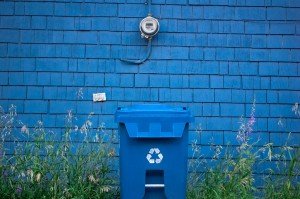 Last week I wrote about the stewardship of coffee, not realizing that this week we are celebrating International Coffee Day. Ah, coffee. So, I opted to stick with a similar theme this week, and expand on something I mentioned last week.
Last week I wrote about the stewardship of coffee, not realizing that this week we are celebrating International Coffee Day. Ah, coffee. So, I opted to stick with a similar theme this week, and expand on something I mentioned last week.
Those wasted coffee pod things. Ugh. To me, they’re as bad as (or worse than!) disposable cups. Double ugh.
Yes, I’m one of those eco-geeks who carries her own travel mug for coffee shop adventures, but I know I’m not in the majority (despite the ease and prevalence of cool travel mugs!). And there are re-useable pod thingies, though they too remain a minority.
Disposable cups end up thrown out of windows and tossed on the street; pods are unnecessary and (w)reckless waste created without actual need. And yes, there are alternatives. Some (very few) compostable cups are being made – yet even when available, they take years to break down in the Canadian climate.
And this is where people will tell me about how they recycle theirs. The cups, the pods, whatever. They’ve dropped it in the blue bin, so that’s just fine – no need to consider what happens next!
I find this attitude to be quite problematic. And not just for the coffee things of pods and cups, but all areas of trash management. When recycling first came in a number of years ago, people started with enthusiasm – and so more and more products came to be recycled and recyclable. So blue boxes have become ubiquitous, and some folks even use them!
Yet when they did first come on the scene, they came with instructions. We were all taught to “Reduce, Reuse, Recycle” – in that order. Our first priority should be to reduce the amount of waste we produce. Our second priority should be to re-use whatever can be reused, rather than to simply cast it aside. When both these options were unfeasible, and only then, we were told to try to recycle before throwing our waste into the garbage.
This method, as basic as it sounds, is demonstrable good stewardship. It’s stewardship of the earth, it’s care for creation, it’s the basis for our newest baptismal vow. It’s good practice for us, in all things, coffee-related or not.
If we knew what actually happened with our recycling, we might be less likely to rely on our blind, blissful ignorance toward the blue box. If we thought about how plastics degrade in quality each time they are recycled (thus producing waste) we might not be so cavalier about tossing those pods into the bin. If we thought about the energy it takes to power recycling plants, we might not be so casual about putting so much into them without reducing or reusing. If we thought about the politics of the recycling itself – materials without demand are simply not supplied therefore wasted; not all municipalities have the facilities to recycle all materials; cost plays a factor in municipal contracts – we might not be so careless with the contents of that blue box.
So this week I invite to think about our garbage. Think outside the box. Think if what we’re casting aside as waste is what we want to be cast aside for our future generations to see. Think if what goes out to the curb (or dump, or dumpster, or wherever your refuse ends up) is showing the world that you care for God’s creation – or not.

By Neil C. Thomsen September 30, 2013 - 12:05 pm
Guilty, as charged.
By Gordon Launchbury September 30, 2013 - 1:05 pm
Try bring your own coffee mug…works for me!
By Laura Marie Piotrowicz September 30, 2013 - 11:40 pm
Indeed! I’m such a geek/collector I have a travel mug for coffee, one for tea, one for cold beverages like smoothies, a few for water (one for the car, one for church, one for long days away). They’re now as common for me (and folks who know me) as the reusable bags I carry, the notebooks with writing on every page, the re-used sacs and boxes and…
The practice is not that hard! But it is a changed mindset. 🙂